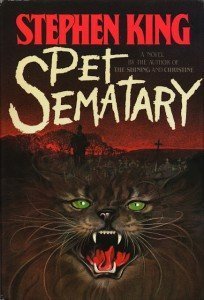Blog 1
Hello, My name is Jason Lewis. I’m majoring in English Education with an emphasis on linguistics, with the aim of possibly teaching overseas. Eventually I’d like to finish one of a few novels I’ve started, but that’s pretty far in the future.
I tend to write fantasy, science-fiction and horror, or a melding of the three depending on the inspiration. My reading has often taken me in similar directions, and I greatly enjoy the works of a few popular authors such as Stephen King, Michael Crichton, J. R. Tolkien, and others. King and Crichton are particularly guilty pleasures due to their similar ideal of blending fantasy and believable scientific progress and stylistic writing, in the case of King a level of “grit” and remorseless description I find immensely satisfying, and in Crichton a way of emphasizing the gravity of minute details.
Szwed poses some interesting questions as to why I came to read the authors I choose to. While my parents did emphasize the value of literacy to a degree, I don’t feel that I was pushed in a particular direction by them, although my first exposures were certainly important. My father unknowingly introduced me to Stephen King when I asked him, “What’s the scariest book you’ve ever read?” His response was “Pet Sematary.” I asked if he had it, and he did. I asked if I could borrow and read it, and he allowed me to, with a disclaimer that he was not responsible for any nightmares about our cat.
What I hadn’t told him was that I intended to read that book for a book report to my 7th grade English teacher for the sole purpose of irking her. I had good reason, as I had wanted to do a book report for Michael Crichton’s “Sphere” originally, only to be told it was “too advanced for me”, not knowing I had already completed the novel. The most natural action in my defiant pre-teen mind was to pick the most nightmarish thing I could find and report on that instead. To that end, I found success, as well as a new favorite author in the process.

Is petty revenge a valid reason for literacy in Szwed’s eyes? Not likely, but it does give a good angle of insight on how varied the motivations, causes and notions about literacy can be. Given that I read for pleasure at a fairly young age, perhaps against the norm, it certainly poses some interesting questions as to our conventional paths into literacy, usually thought of as rote memorization through grade school with structured assigned readings on a gradually increasing scale of difficulty and content. I don’t consider myself different intellectually than most of my peers, so what changed my perspective in such an unusual way? Why did I take to it where others found it difficult or drudging? Food for thought.

 Website:
Website:
3 Replies to “Blog 1”
Jason, really enjoyed reading this. And as I think I mentioned as we walked out last week, your motivation for reading certainly mirrors my son’s experience and many of his friends. They were often reading “against” the assigned texts in the classroom (many of those texts they had already read). As someone who thinks about literacy, I’ve always wondered why we don’t ask our classes what they’ve read, give more choice, etc. What is the value of the common reading experience in classrooms? Especially as the ONLY reading experience?
I’m also struck by the category of “guilty pleasures.’ Could be worth unpacking…why are some texts viewed in this way? What is it about a book, our constructions of what “counts” as reading, or our own identities as readers that leads us to put some texts in this category?
Thanks for the post!
Kim
I love your act of rebellion to authority, and the reasoning behind it. You seem to have been an insightful kid and now doubt years of study only increased this. I find your mention of blending genres particularly interesting and would love to see/read/talk about what that means to you
Jason,
I had the same exact problem in my Elementary school when trying to read Harry Potter. In 3rd grade my teacher wouldn’t let me do a book report on Harry Potter because she believed it to be too advanced. Due to this restriction, naturally I kept up my reading of advanced novels. I like that you challenge yourself at a young age with harder books. I can relate to pushing oneself to read at a higher level.